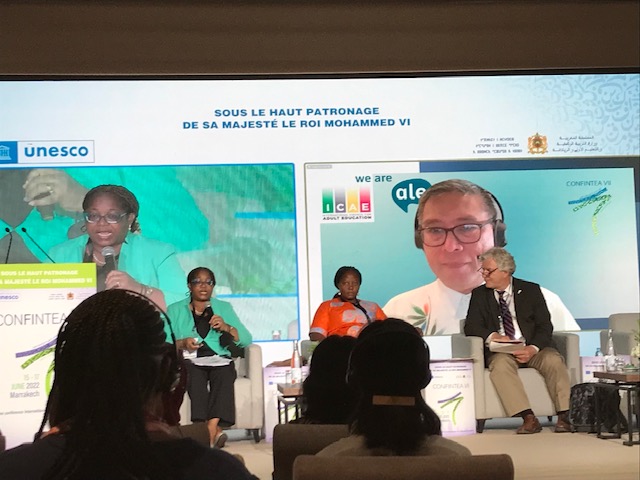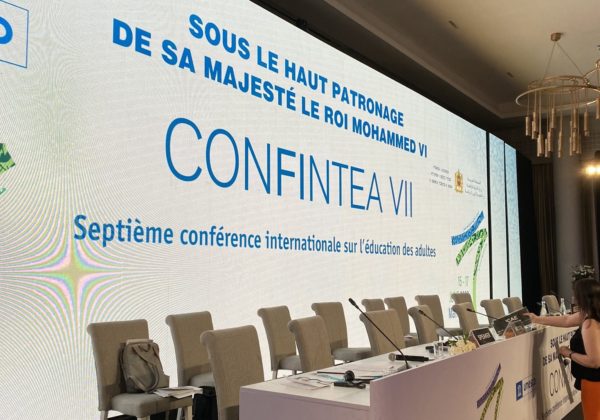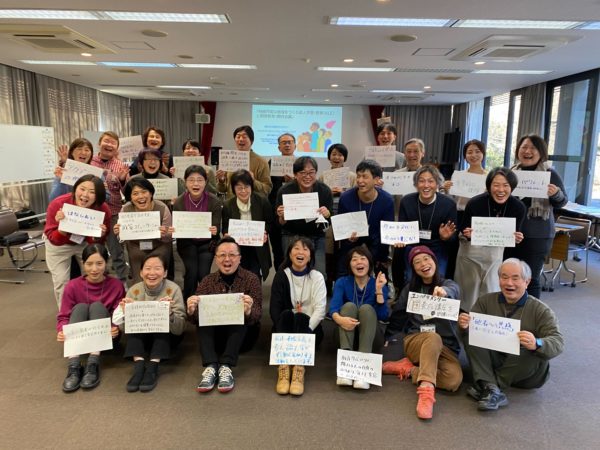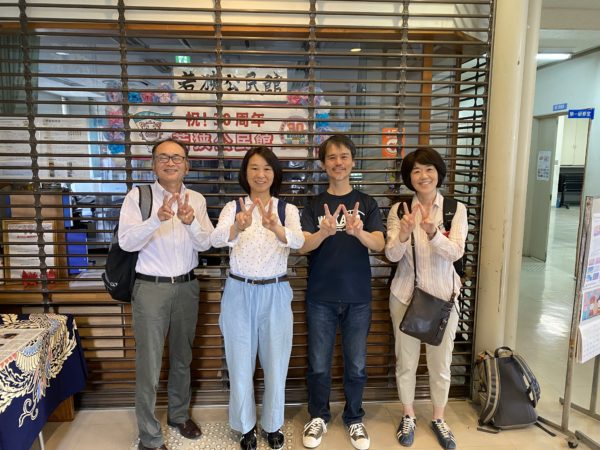 by Certified NPO Development Education Association (DEAR)
by Certified NPO Development Education Association (DEAR)
Participated in the 7th UNESCO International Conference on Adult Education (2/3)
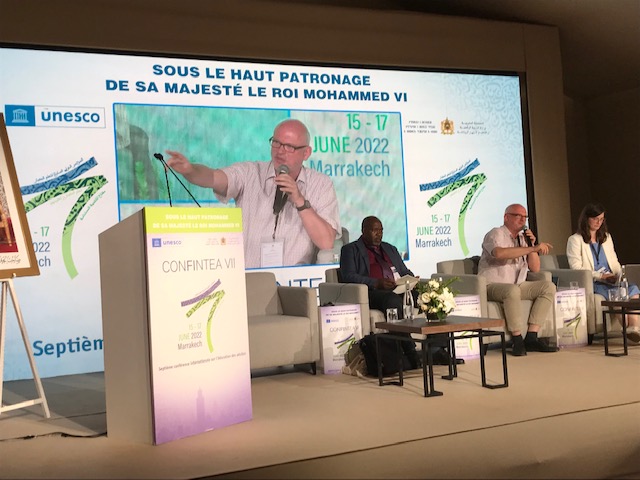
Hello, this is Ito from the DEAR staff.
We participated in the 7th UNESCO International Adult Conference (CONFINTEA7) from June 15th to 17th. In the first part, we introduced the Civil Society Forum, which was held prior to CONFINTEA7. In the second part, we will introduce the state of the CONFINTEA 7 meeting and how the recommendations from civil society were reflected in the " Marrakech Framework for Action " in two parts.
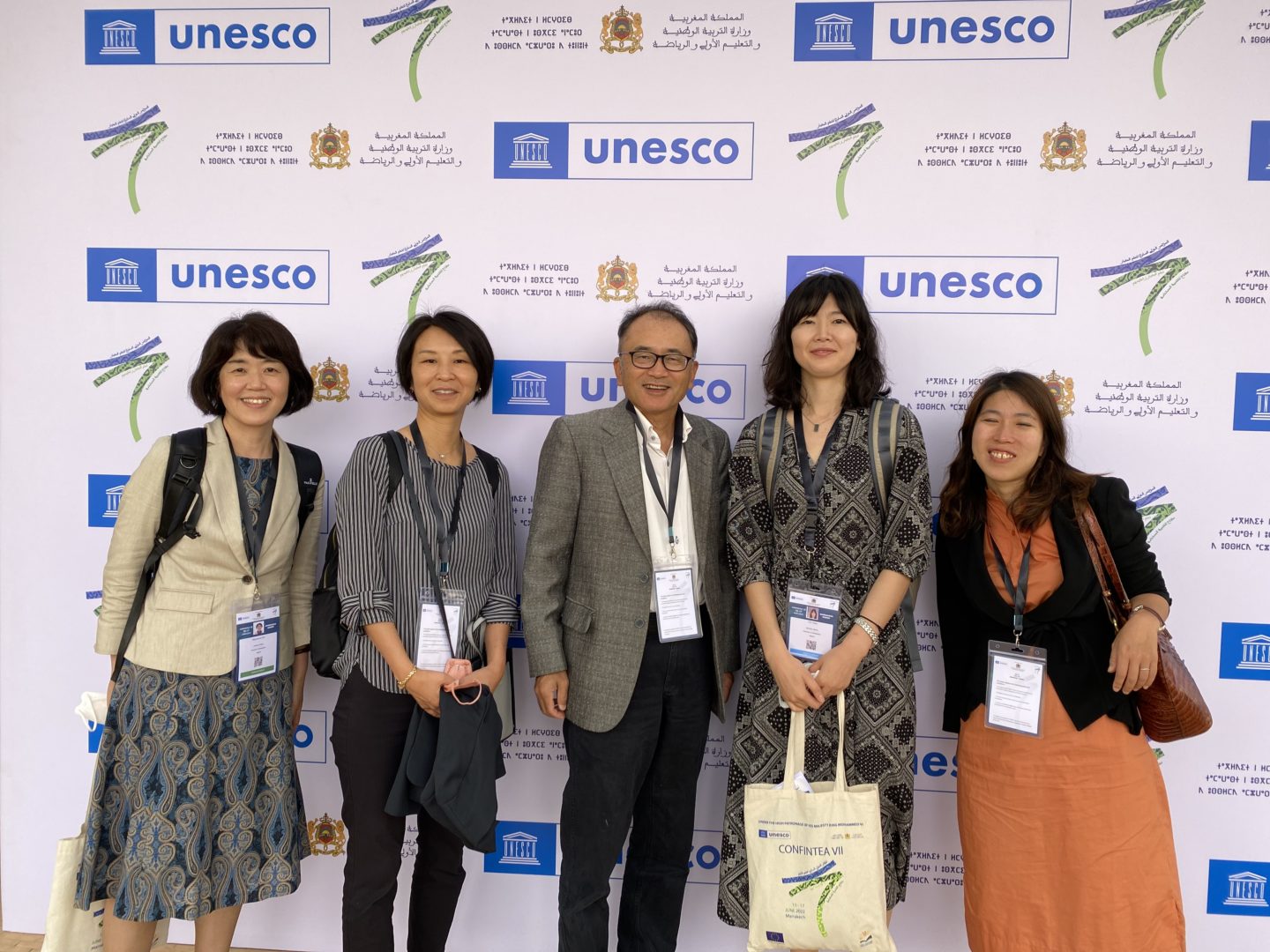
1)1日目(6/15)のハイライト
On this day, the " Fifth Global Report on Adult Education and Learning (commonly known as GRALE5) " was published, and reports from the Civil Society Forum, Youth Forum, and Private Enterprise Forum held prior to this meeting. had. ([Reference] CONFINTEA 7 program )
The outline of GRALE5 is also posted on the ALE knowledge site, so please refer to it.
GRALE monitors and reports on whether UNESCO member countries are implementing international ALE commitments, and the report combines survey data, policy analysis and case studies for policy makers and practices. It provides people with appropriate recommendations and good practices.
■ Report from Civil Society Forum
From the Civil Society Forum, ICAE Secretary-General Katrina Popovic reported the following proposals summarized the day before.
- Strengthening ALE Financing Commitment
- Expanding efforts to implement literacy rate improvement policies
- Strengthen support for ALE teachers and educators to achieve quality ALE.
- Incorporate learners' voices into the planning, design and implementation of ALE policies and programs.
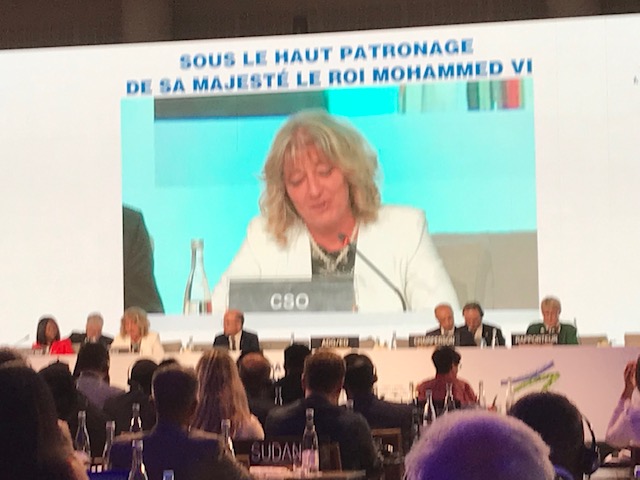
In a later online discussion, ICAE Chairman Robbie Guevara added the following to the report:
"We participate in our commitment to transforming adult learning and education as a universal human right. To this end, we have more public funding than ever before and the most marginalized people are of high quality. It is necessary to build more effective partnerships across sectors to ensure access to education, which has long been a learning experience despite the lack of demanding working conditions and professional development opportunities. It can only be achieved by increasing the expertise of ALE educators who have continued to serve for. We expect these key elements to be incorporated into the Malakesh Framework for Action. "
In a report from the Youth Forum, there was a voice saying, "Engagement with policy!"
At the subsequent plenary session on "Adult Learning and Education in the New Educational Social Contract," ICAE South America Vice President Timothy Ireland gave a lecture on the right to lifelong learning. Civil society needs a formal forum for cooperation with the government. Adult education must be cross-departmental. "
2)2日目(6/16)のハイライト
■ Subcommittee: Community Learning Center
On the second day, the subcommittee "Community Learning Centers (CLCs) as an Important Structure for Adult Learning and Education" conducted by DVV International (Germany Adult Education Association) with ICAE and GAEN (Gursia Adult Education Network)- Participated in "Prerequisites and Good Practices". Lessons from good practices of CLC in Uganda, Georgia, Peru and Thailand and the impact of ALE on CLC's activities were shared. CLC is recognized as a public hall in the Japanese context.
At the workshop, speakers and participants talked about "community learning, an innovative form of encouraging intergenerational learning and engaging adults and their families in learning by collaborating with stakeholders in other regions." I discussed. The important questions discussed in the workshop are:
- What role does CLC play in sustainable development and providing lifelong learning opportunities for all?
- What governance and financing schemes are preferable for CLC to function properly in the long run?

■ Plenary session: "Literacy-Basics of Lifelong Learning"
In the afternoon plenary session, ASPBAE Secretary-General Helen Dub moderated the plenary session on "Literacy-Basics of Lifelong Learning." Representatives from Burkina Faso, Nepal, Egypt and Canada participated in improving literacy rates for young people and adults, strengthening cooperation between ministries, improving sustainable and multi-sectoral financial plans for literacy rates, and comprehensively on literacy rates. We shared a way to ensure reliable data.
■ Subcommittee: "Active civic education is needed to face the global crisis!"
After that, I participated in the subcommittee of "Active Citizenship Education" sponsored by ICAE. The purpose of the subcommittee is to understand the background of the need for active citizenship education, identify the diverse implications of active citizenship education, and share good practices.
Cases from each country were shared, but the one that impressed me most was Carroll's report from "Pamoja West Africa." Young Gambian cowherds were unaware of the rules, crossed regional borders without permission, and were frequently warned. Their self-esteem was hurt because they were always angry. However, in the activities of citizen education in "Pamoja West Africa", learning about border issues and regional rules, knowing the right to elect and vote, can create peaceful relationships with others, and the problem is. Even if there was, we understood that we could handle it. Through civic education, I was able to see how people are learning to live their lives independently.
Also, when it comes to global citizenship education, it is necessary to decolonize the developed countries in the north, and it is essential to be aware of the power and vested interests of the developed countries and to convert them. Was done. It was also shared that when it comes to global citizenship education, it is always important to look back on the individual, and that change begins with the individual.
I felt that the concept of "active citizenship education" in adult education is about to be organized, discussed, and shared, so I would like to continue to pursue it and discuss it with everyone in Japan as well. (Report: Nakamura, Ito)
